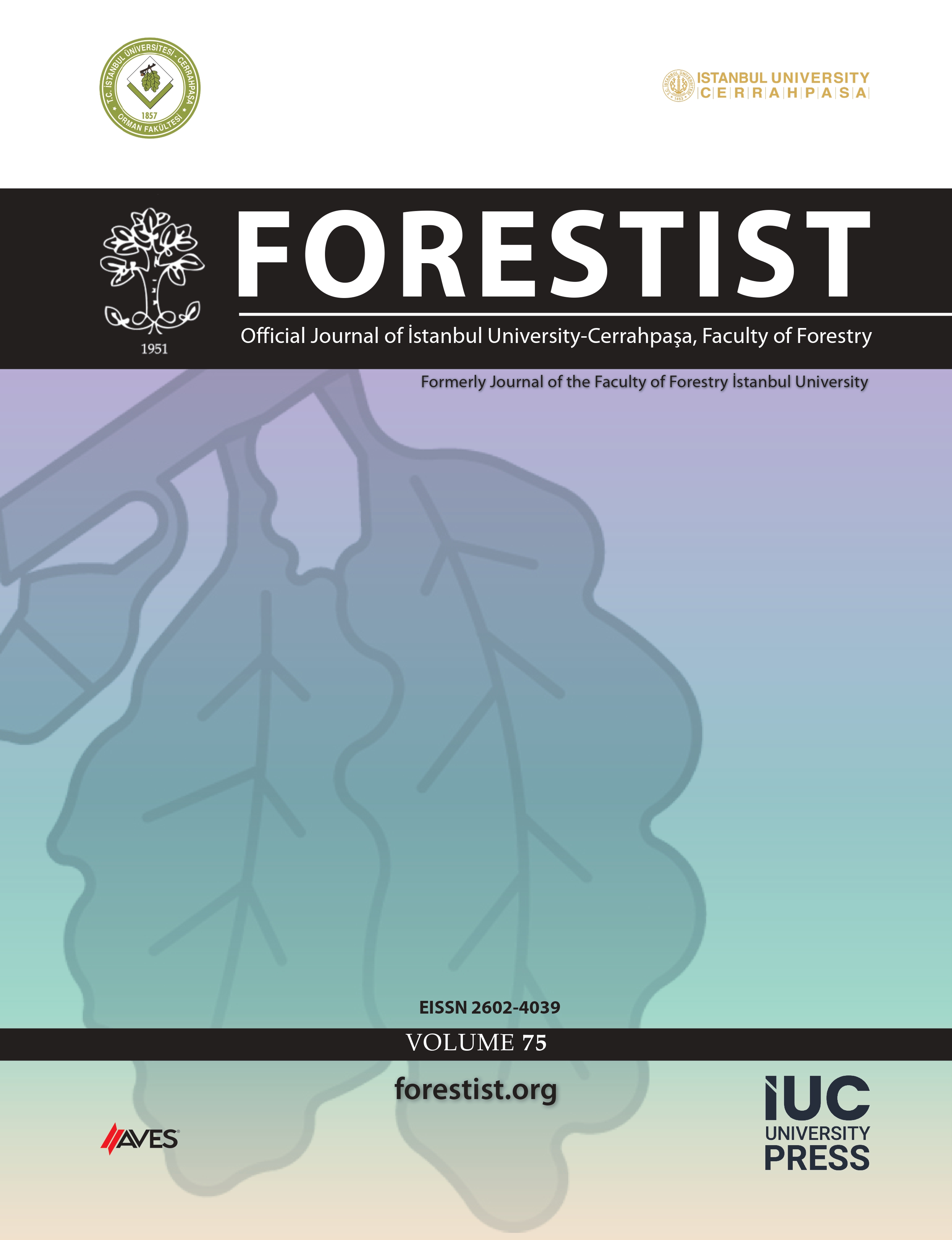In this work, we study the effects of trekking on the soil physical properties in the Turkish Bolu-Aladağ fir forests. One hundred people walked in a straight line in the case study area, and their effects on a number of soil physical properties, such as litter fall thickness, soil bulk density, soil moisture, and soil compaction, were investigated. The study comprised three replicates over two tracks in two consecutive years. The thickness of the surface litter fall (mm) was measured and its amount determined in (gr/m2 ) as the dry weight of the soil samples collected in the sampling area. Soil bulk density (g/L) was measured using cylindrical samples. Soil moisture (%) was determined based on the difference between the fresh and dry weights. The results indicate that the surface litter thickness decreased on trekking routes (r=0.568), and the fresh (r=0.440) and dried (r=0.423) soil bulk densities increased. However, there appeared to be no effect on soil moisture. Compared to the control samples, an average of 14% compaction was detected in trampled soils as a result of human pressure. Furthermore, the physical effects of trekking caused compaction of the litter fall and soil. As a result, such activities could lead to a decrease in soil infiltration capacity causing soil erosion and degradation in the future.
Cite this paper as: Duyar, A., Kiniş, S., 2018. The effects of trekking activities on physical soil properties in the Bolu-Aladağ fir forests. Forestist 68(1): 36-41




.png)
